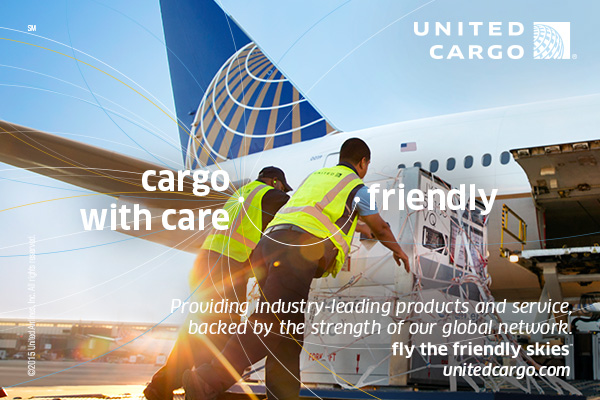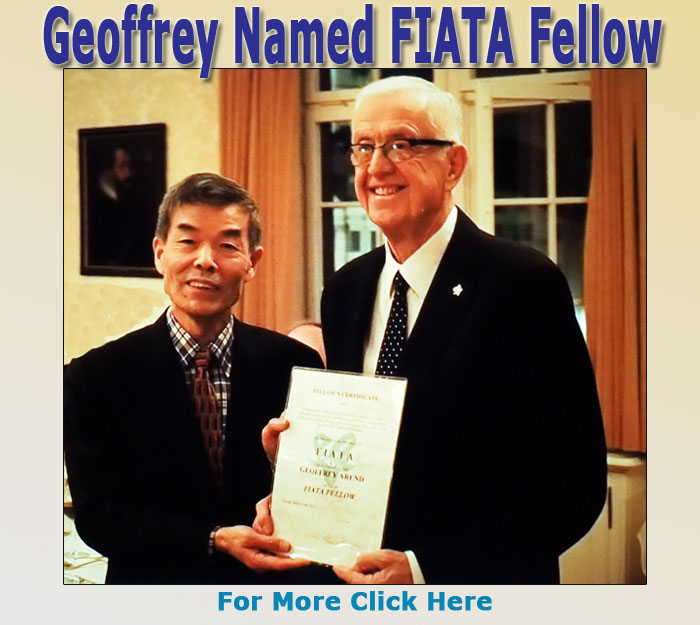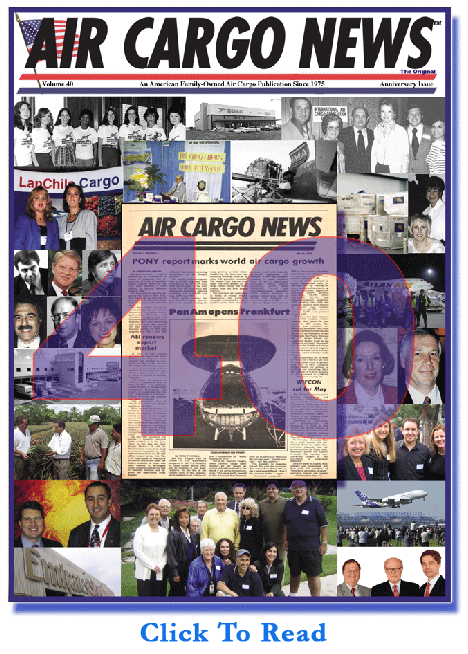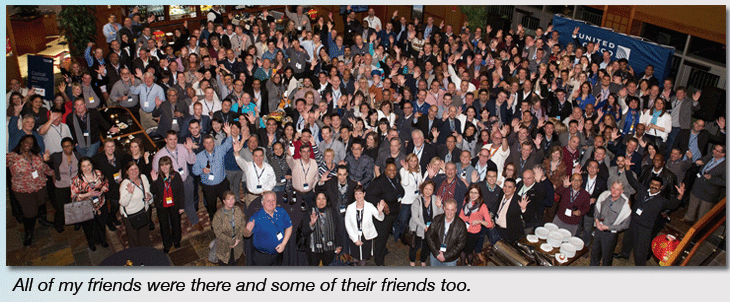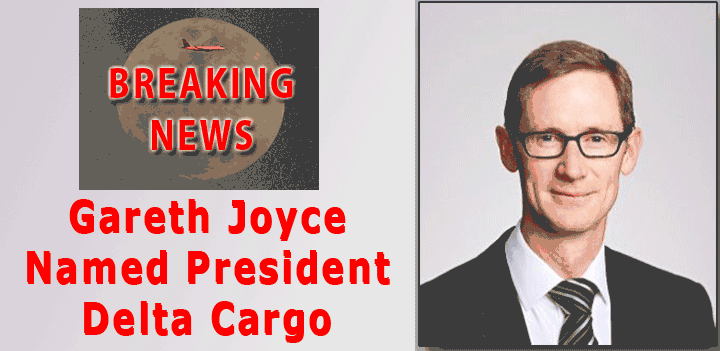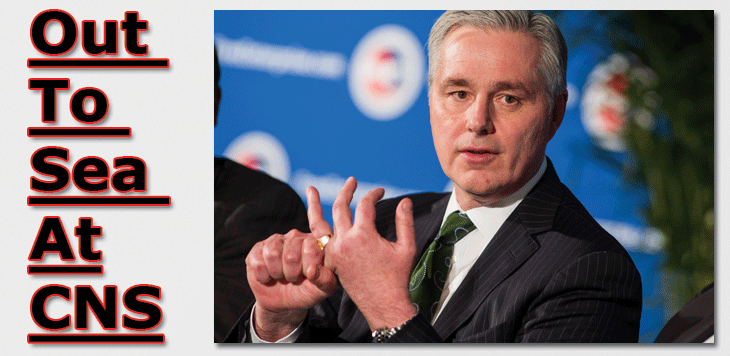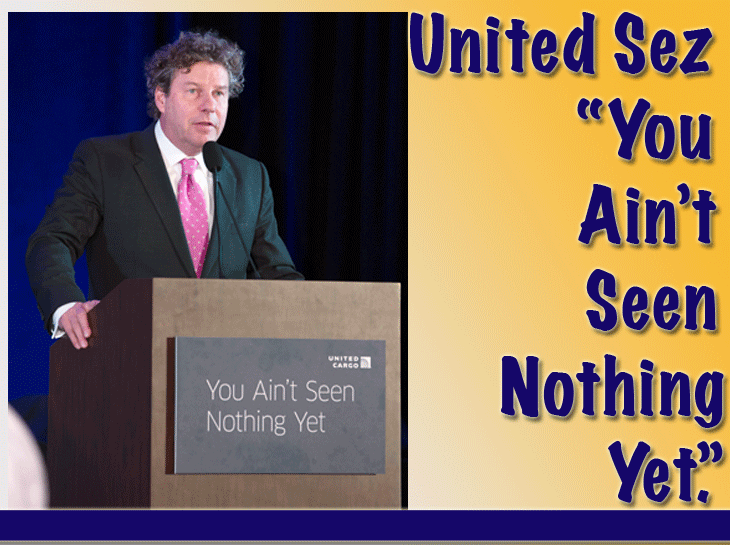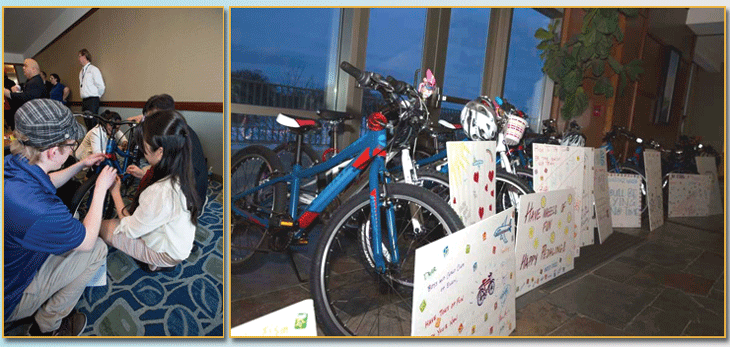
We spent
a couple of days in March at the big FIATA meeting in
Zurich, Switzerland. There the fabled 90-year-old organization
stepped outside itself to bestow upon me the title of
“FIATA Fellow” in a lovely ceremony inside
a 700-year-old restaurant near FIATA HQ.
In a world of meaningless
awards meant only to pump up the bank accounts of publications
and organizations, being recognized for excellence by
the airlines’ biggest customer was, to our mind,
the exception that makes the rule.
So there we were, a father
and his oldest son, in a room full of top global freight
forwarders in Zurich, where everybody seems to want
to stick a small piece of chocolate in your pocket all
the time.
The FIATA Fellow event
gave us the opportunity to sit down with some heavy
hitters in this business, and none more important than
industry icon Issa Baluch.
The
World of Issa Baluch
Issa Baluch was born in
1952 in East Africa.
Ethnically an Omani and
African mix, Baluch left East Africa in the 1970s and
took up residency in Dubai, where he launched his career
as a tally clerk at the Swedish-owned Gulf Agency Company
in 1973.
He was general manager
of the supply chain department where he helped initiate
sea-air multimodal transport between Asia, Europe, and
North America before he established his own business
Swift Group in 1989.
His vision was to take
advantage of the African market –a place he still
considered home –and his situation in Dubai gave
Baluch a great advantage positioning his firm at the
midway point between Asia and Africa. The sea-air multimodal
transportation method was designed so that goods from
Asia could be shipped by sea to Dubai, and then transferred
by air to West African countries, saving time and money.
Business grew very fast in part due to Dubai’s
pro-business government, free seaports, and open skies.
Over time, Baluch began adding value through light assembly
and packaging.
By 2008, when Baluch sold
Swift Group to South African-owned Barloworld Logistics
and retired, Swift Group had expanded to 24 countries
–16 in Africa –and 49 branches.
Mr. Baluch had, also among
other things, served as the founding President of the
first Freight Logistics Association formed on the Arabian
Gulf Peninsula in Dubai, the National Association of
Freight Logistics (NAFL).
Links
Beyond The Golf Course
“In 2011 after having
moved to North Carolina and a relaxed retirement and
frankly tiring of playing golf everyday, I was accepted
by Harvard University to become a Fellow in their new
program, called Advanced Leadership Initiative (ALI).
“The following year,
I became a senior Fellow and Associate of Science, Technology,
and Globalization at The Harvard Kennedy School.
“At present, I am
considered as a visiting Senior Fellow.
“Harvard encourages
all ALI Fellows to initiate a social impact project,
and so, as one of the investors in a 10,000-hectare
farm (Africa Atlantic Farms) on the Afram plains alongside
Lave Volta (the world’s largest water reservoir)
in Ghana, West Africa, we studied the prospects of planting
a Knowledge Center as a depository of skills and experiences
gained from the commercial farm and the African Agribusiness
Knowledge and Innovation Leadership Initiative (AKILI)
was born.”
It is not coincidental
in this project for Africa that “AKILI”
is the Swahili word for wisdom.
“Sharing knowledge and wisdom lies at the heart
of our mission,” Issa Baluch said.
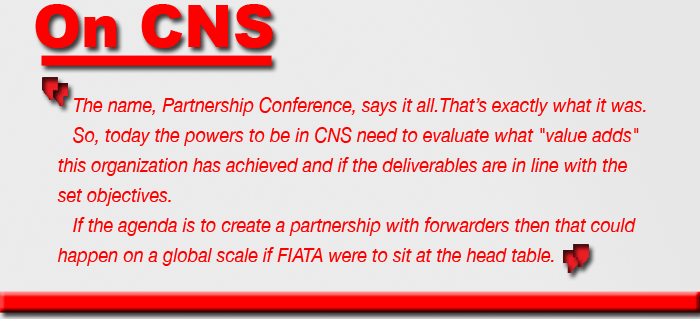 |
Doing The Most Good
“This project,”
Issa explains, “picked up momentum and we formally
launched the Africa Agribusiness Knowledge Centres (AAKC),
where I was appointed Chairman.
“The effort, one
of a kind was supported by Harvard Kennedy School’s
Science, Technology, and Globalization Project department,
MIT, Masdar Institute of Abu Dhabi, and most recently,
the D.C.,-based Corporate Council on Africa (CCA).”
Master
Plan For Progress
“A master plan developed
via a charrette, (a brainstorming technique from the
early 1800s) was completed by MIT.
“The complete project
design includes an airport, logistics and cool chain
centers, and the AAKC facility, among others.
“A 27-course curriculum
was created to offer youth, farm workers, and all participants
up-to-the-minute technology to improve farm production.
“My own contribution
is logistics and work experience in Africa, particularly
in distribution—the entire project is driven from
a demand angle and food security is a big ticket item
locally, regionally, and internationally.
“The stakeholders
of this project are committed to a vision of scaling
this model across the continent of Africa.”
In 2015 as the pilot program
at the Africa Atlantic farm in Ghana neared completion
word spread of the project to train small-scale farmers
for commercial success, which had excited representatives
from several African countries, who attempted to persuade
Baluch to establish an AKILI divisions in their country.
FIATA
& Africa
“Here in Zurich
and elsewhere in our meetings these days, ongoing discussions
aimed at encouraging the dropping of barriers and opening
skies in concert with ICAO and other bodies across the
African continent are of great importance.
“Everyone recognizes
the need for African governments to adopt a more liberal
attitude to truly open skies, but of course the obvious
is always easier said than done.
“Today, Africa,
for Africans—at least in the sky—is one
of the most expensive and underserved areas of the world.
“The Africa aviation
situation is ‘Topic A’ for anyone who wishes
to do business or is even vaguely interested in the
welfare and development there.
“Africa should be
on the agenda (as developing markets often are) of every
industry gathering to search for solutions aimed at
truly opening up a great yet untapped resource of the
world, both for the people who live there and everyone
else.
“Africans tend to
be a little more accommodating to international carriers
coming in from overseas then to their next door neighbors.
“It is almost like
there is a wall between countries, to look at it one
way.
“FIATA is encouraging
greater cooperation between the various states of Africa.
“Look at the numbers.
“There are 54 African
countries, 16 of which are landlocked, and also the
eight African islands that in total include more than
100 border crossings, each unfortunately with their
own procedures.
“Right now the most
visible aspect is at all those border crossings, where
queues of trucks are stuck in a paperwork jungle, unable
to move for weeks sometimes.
“The impact beyond
delayed shipments and ruined cargo is also seen in the
abnormally high incidents of the AIDS epidemic raging
amongst big and small rig truck drivers.
“Everything is driven
into negative overdrive because of bottlenecks in the
air and on the ground in Africa.
“Inter-African trade
stands at 11 percent. By comparison, inter-European
trade is 70 percent; in the Americas 40 percent; in
Asia 25 percent.
“So there is much
to be done to create more open trade between the countries
of Africa.
“As frustrating
as this might sound, sometimes it appears that Africans
unintentionally can be their own worst enemies.
“For example right
now there are eight regional bodies that are supposed
to drive cooperation and trade in Africa, but in reality
I am afraid that their net impact is creating more bottlenecks.
“There is some hope,
however, as three of the region’s regulatory bodies
have formed a Tripartite Alliance to try and streamline
processes.
“Some progress is
apparent in moving toward Open Skies and most notably
in establishing a Free Trade Agreement.”
Free
Trade Agreement Out of Africa
“The Tripartite
Free Trade Area Agreement (TFTA), bringing together
member and partner states of the Common Market for Eastern
and Southern Africa (COMESA), the East African Community
(EAC), and the Southern African Development Community
(SADC)[1], was signed in Sharm-el-Sheikh, Egypt, on
June 10, 2015, by representatives of most of the 26
countries covered by the deal.
“The 26 countries
represent 48 percent of the African Union membership,
51 percent of continental GDP, and a combined population
of 632 million.
“If the TFTA countries
were one country, it would be the thirteenth largest
economy in the world.”
Hope
& Change
Issa Baluch brightens
considerably when he declares:
“Right now there
are 54 Presidents in Africa and for the first time in
history 16 are engineers, versus in the past when 30
of the leaders were military rulers.
“By contrast, today
only about five leaders of African nations are military
rulers.
“Innovation in Africa
needs to be identified and youth must be served.
“For example, FIATA
hosted three young people from Africa who devised an
app to control trucks moving from Ghana to places like
Accra.
“So part of the
challenge is to uncover and empower the intellect out
there and work to coordinate among other African talent
to get things done.
“It’s all
hands on deck for Africa now,” Issa Baluch declares.
Thinking
About CNS In 2016
“If one were to
go back to the original blue print of CNS, the first
expression that will hit us is the reference to a vision
to develop a platform for the purposes of a Partnership
Conference aimed at bringing airlines and forwarders
together.
“It worked precisely
because CNS and IATA had to keep an arm’s length
relationship in order not to run afoul of American anti-trust
laws.
“Conversation and
debate were encouraged and thrived.
“The name, Partnership
Conference, says it all.
“That’s exactly
what it was.
“So, today the powers
to be in CNS need to evaluate what "value adds"
this organization has achieved and if the deliverables
are in line with the set objectives.
“If the agenda is
to create a partnership with forwarders then that could
happen on a global scale if FIATA were to sit at the
head table.
“Today, this is
not happening as this organization is led exclusively
by IATA. “The air cargo industry has lost a neutral
forum in which all stakeholders could interact equally.
“The opportunity
to address these changes and reset the deliverables
in this direction is still there,” Issa Balch
said.
Geoffrey
|
